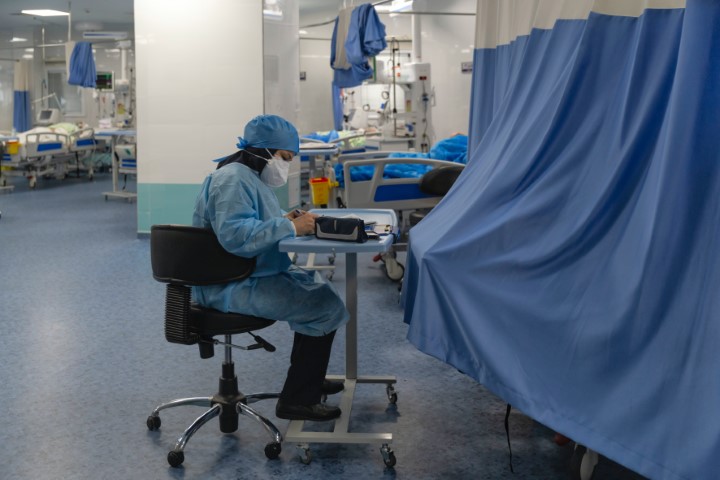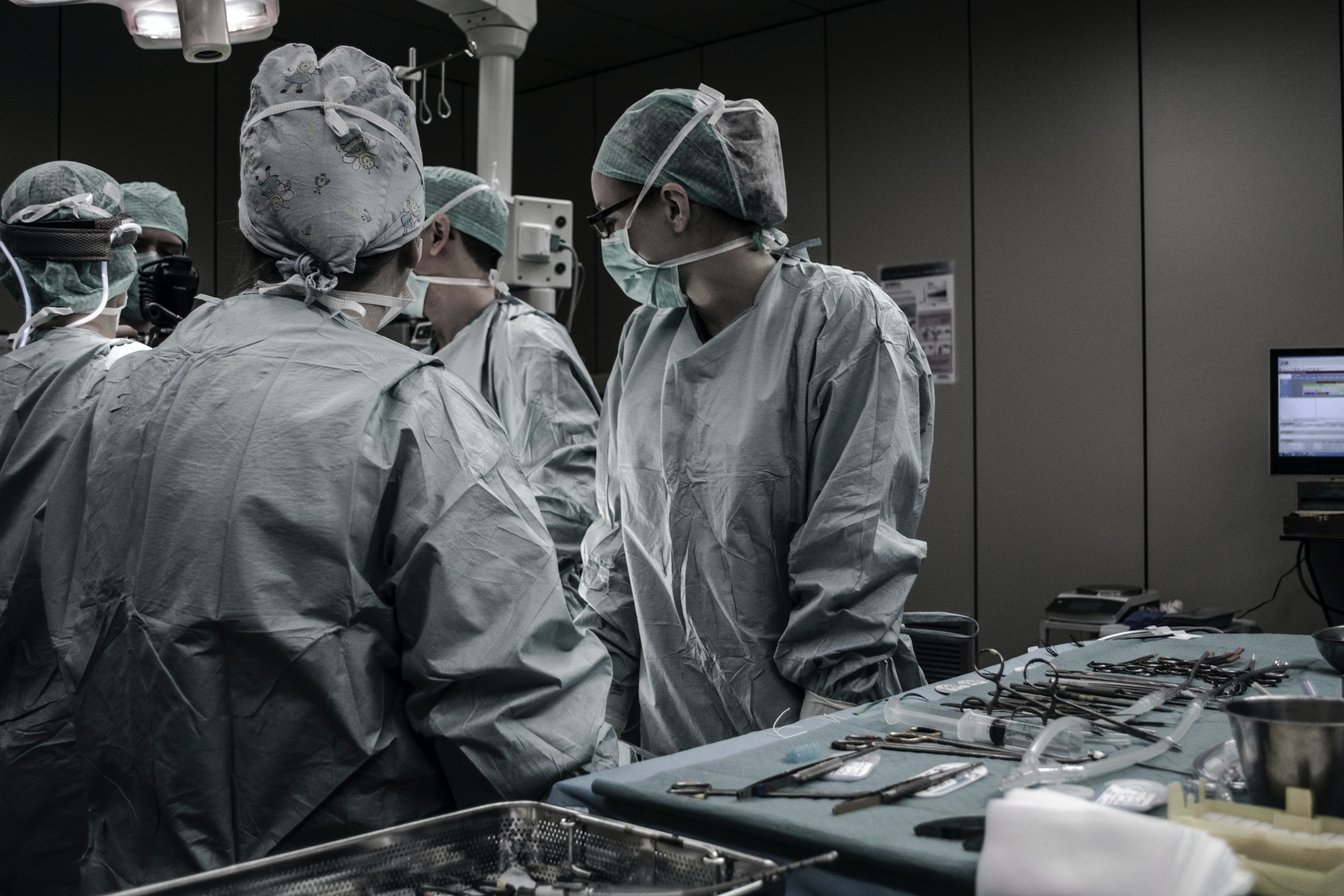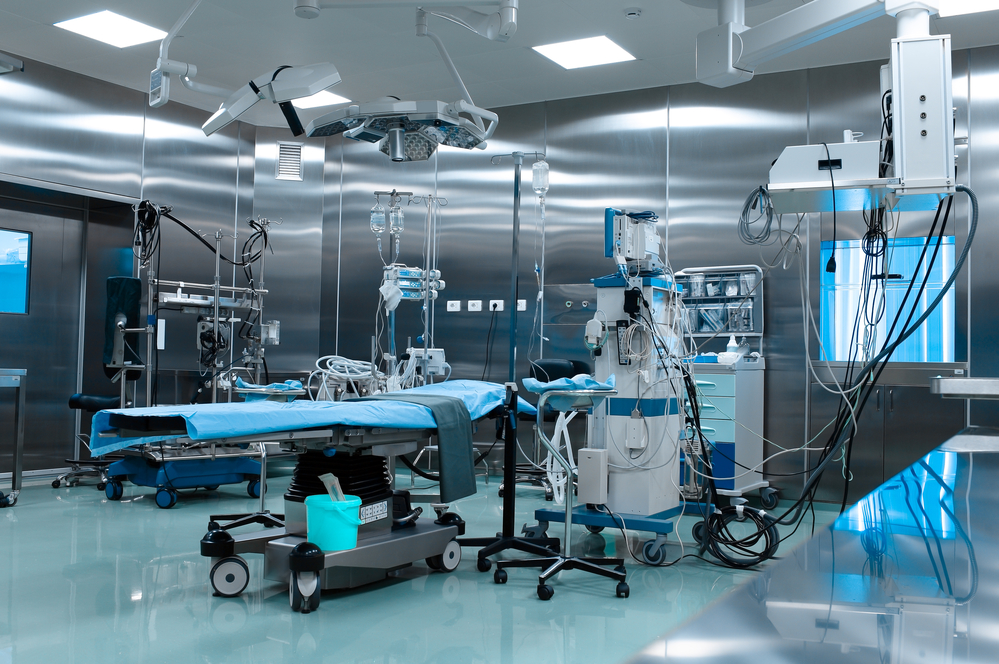Blog Posts - Surgical errors
26
Oct 2021
Can I Sue for Not being Told the Risks of a Procedure?
Imagine that you agree to a surgery and afterward, you suffer serious complications that you never even realized were a risk. If you had known about the possibility of such complications, you likely would not have agreed to undergo the procedure. What are your rights in this situation? It is best to discuss this matter with an experienced Ohio medical malpractice attorney as soon as…
Read More13
Sep 2021
Six Facts About Surgical “Never Events” In Ohio Hospitals
The phrase “never event” entered the healthcare discussion in 2001, when it was used by the National Quality Forum to describe medical errors that are so stunningly simple to avoid that they should, quite literally, never happen. The stark truth, though, is that the name remains a misnomer. Extremely preventable medical errors happen shockingly often, as you’ll see below. 6. More Than 11 Never Events…
Read More14
Jun 2021
Do Surgeons Make More Errors on Their Birthdays?
Surgical mistakes can be harmful to patients, often resulting in preventable complications, the need for future surgeries, or even death. There are many reasons why such errors happen in the operating room, including a lack of communication between surgical teams, fatigue, carelessness, and more. Distraction is also a common cause of surgical mistakes, and this includes distractions due to personal events in the surgeon’s life….
Read More25
Mar 2021
Wrong Site Surgery Errors Still Happen
When you awaken from a surgery, that very last thing you expect is to learn that the surgeon performed surgery on the wrong side of your body or performed the wrong surgical procedure altogether. Not only did you not receive the procedure you needed (and still need), but there might be irreversible effects of the wrong surgery you did received. Despite the fact that wrong…
Read More08
Dec 2020
Are Organ Transplant Errors Common?
There are few medical procedures as extensive and complicated as organ transplants. To raise the stakes even higher, patients needing transplants often require them as a life-saving measure. When a patient undergoes an organ transplant, there are always risks, and patients should be fully informed of these risks. However, when someone involved in the transplant process makes a mistake, the results can be devastating or…
Read More03
Jun 2020
Technology Employed to Reduce Instances of Retained Items
Retained items are a serious issue — in large part because such events are utterly unnecessary, and yet so common. In the medical world, sponges account for 70 percent of retained surgical items. In fact, sponges are so often miscounted or forgotten, that new technologies are being developed in an attempt to decrease the frequency of such events. Leaving a sponge (or anything that is…
Read More09
Sep 2019
What Happens When Surgery Centers are Negligent?
When patients need an outpatient surgical procedure, many are choosing to go to surgery centers instead of hospitals. Ambulatory surgery centers (ASCs) are also known as same-day surgery centers, surgicenters, or outpatient surgery centers. These facilities allow patients to save money by not being hospitalized. ASCs can handle many types of surgeries and procedures, such as cataract surgery, endoscopy and colonoscopy, biopsy, cosmetic surgery, and…
Read More02
Aug 2019
Can I Sue if My Surgery Had Complications?
When you go into surgery, you should understand the risks of the particular procedure, including not only the complications that commonly arise, but also complications that are uncommon, if those complications may be serious. Recovery from surgery is difficult enough when everything goes according to plan. When it doesn’t, your recovery can be prolonged, or additional medical care may be needed. When you experience a…
Read More01
Jul 2019
Make a List and Check it Twice
Such a simple idea – a surgery checklist – has proven to save lives. The Surgical Safety Checklist, a 19-item tool created by the World Health Organization (WHO), identifies what should happen before anesthesia, before an incision is made in the skin, and before a patient leaves the operating room. A byproduct of the WHO’s Second Global Safety Challenge entitled Safe Surgery Saves Lives, this…
Read More22
Jun 2016
Is Your C-Section Medically Necessary?
The popular procedure is not always medically necessary, which may lead to unnecessary complications Roughly one-third of all babies born in the United States every year are delivered via a Cesarean section, or C-section. Approximately 1.3 million babies are brought into the world annually by this procedure in the U.S., which involves delivering the baby through an incision in the mother’s abdomen and uterus. Of…
Read More19
May 2016
Concurrent Surgery: When a Surgeon Bails During a Procedure
(This article reflects a story told to The Eisen Law Firm by a former client) The truth about surgeons’ presence in the operating room When I decided to undergo knee replacement surgery, I was pretty nervous. Being put under has always seemed a little strange to me. After all, you are relying on the expertise of an anesthesiologist to give you the proper dosage of…
Read More02
Apr 2014
Vetting a doctor: How can a consumer find reliable information?
Imagine that you were informed by a trusted doctor that you required a surgical procedure. Perhaps your doctor recommended a particular surgeon for the job, or perhaps that same surgeon came highly recommended from other sources. And now imagine that, following surgery performed by that recommended doctor, you developed serious complications caused by the negligence of the surgeon. To your dismay — even shock —…
Read More25
Mar 2014
Cautionary tale: with physician ratings, caveat emptor
A recent article in Physician’s Weekly casts serious doubt on the reliability of websites that provide physician ratings. The article focuses on one particular physician, a cosmetic surgeon from California who had a “4/5” overall rating on several websites. According to the article, however, the doctor “apparently had no formal training” in cosmetic surgery. That doctor was a concern of other surgeons, who brought his…
Read More28
Feb 2014
Surgical site infections and potential liability issues
Readers might assume that outpatient procedures are less likely to result in surgical infections than procedures that require hospitalization. Yet a recent study involving 284,098 patients in eight different American states reveals that surgical site infections continue to be a risk, even for outpatient procedures. According to the study results, infections were most often detected within 14 days of a procedure. Fortunately, that early detection…
Read More22
Feb 2014
Surgery patients infected due to sterilization oversight
As if there weren’t enough risks accompanying neurosurgery, 18 patients at a North Carolina hospital may have been exposed to a fatal disease from improperly sterilized surgical instruments. According to a preliminary investigation, the disease may be Creutzfeldt-Jakob disease, which is a type of brain disease that is rare and fatal. The source of the infection may have been a patient who reportedly was displaying…
Read More10
Jan 2014
Does cost discourage patients against medical malpractice suits?
One patient’s recent account of a postoperative infection serves as a dual reminder of: (1) the very real possibility of being injured by a medical mistake; and (2) the difficulties that an injured patient may face in attempting to hold health care professionals accountable for their negligence. The patient had volunteered to donate a kidney to his brother, and he was not worried about the…
Read More22
Nov 2013
Malpractice claims not linked to rising health care costs
Although medical malpractice suits may be blamed for the rising costs of healthcare, recent data suggests otherwise. In fact, the data reflects that malpractice insurance for doctors has actually been declining in the past decade. Specifically, between 2003 and 2011 there was a 40 percent drop in the number of paid malpractice claims, representing a drop from 17,000 to below 10,000 claims. As a percentage…
Read More08
Nov 2013
Issues surrounding negligent postoperative care
A recent article explores the issue of medical record keeping in the context of doctor errors. Specifically, a doctor noticed a discrepancy between a patient’s medical records and his recollection of a cataract surgery that he had witnessed. The doctor remembered that the hospital’s ventilator had malfunctioned during the procedure, pumping too much air and causing one of the patient’s lungs to collapse. That complication,…
Read More18
Oct 2013
Robotic procedures may not reduce surgical errors
Advances in medical technology have resulted in an increasing presence of automated procedures, from diagnostic imaging to laser surgeries. In fact, some surgeries are even robotically assisted, with doctors overseeing the procedure from a console, similar to a video-game format. The use of robotic surgery may raise interesting questions about the culpability of hospital staff or doctors in the event of a medical mistake or…
Read More18
Sep 2013
Why tort reform isn’t doing health care any favors
Tort reform is often pushed with good intentions. The goal is to keep frivolous lawsuits out of court, and that’s an objective most Americans can get behind, including personal injury lawyers. However, the problem with tort reform — and the reason it has been unsuccessful over the past several decades — is that it doesn’t just affect frivilous lawsuits, but also meritorious ones. The unfortunate…
Read More11
Sep 2013
One doctor’s errors demonstrate danger of med mal reform
In 2003, the Texas legislature implemented scary reforms to medical malpractice law. For instance, damages for pain and suffering are capped at $250,000, and hospitals cannot be sued for malpractice unless they acted with “malice” when credentialing the doctor at issue. Additionally, the laws were changed to allow hospitals to keep doctors’ credentialing records confidential in most cases, making this “malice” requirement even more difficult…
Read More05
Sep 2013
Ohio hospital sued after kidney is mistakenly tossed
It has been more than a year since a young man attempted to save his sister’s life by donating his kidney to her, only to have a nurse at the University of Toledo Medical Center mistakenly throw out the organ. However, the family involved still feels a tremendous amount of pain and frustration over the surgical error. The sister, who was 24 at the time,…
Read More21
Aug 2013
Canadian province enforces safety measures after surgical error
Health officials in Canada are calling for tighter safety regulations after a major surgical error resulted in a patient mistakenly receiving a mastectomy. The health minister of Nova Scotia said the entire province will now be taking part in a new medical-error registry to help monitor medical mistakes. Currently, hospitals and medical centers throughout the province track their own medical errors, but the new registry…
Read More14
Aug 2013
Famous pilot drawing attention to medical errors in the U.S.
While he may be known for famously landing a passenger jet on the Hudson River in 2009, Capt. Chesley “Sully” Sullenberger is now taking heroic measures in an effort to reduce medical errors in the United States. According to Sully, if even half as many people were killed in airplane crashes as are killed because of medical errors, the aviation industry would come to a…
Read More07
Aug 2013
Study examines patient outcomes following surgery in Ohio
Recently, Consumer Reports graded more than 2,000 hospitals in Ohio and the rest of the country on surgical outcomes and medical mistakes. Twenty hospitals in the Greater Cleveland area were part of the study, which was released last week. The grading took into account 27 categories and individual ratings on scheduled operations involving back surgeries, hip replacements, knee replacements, angioplasty surgeries and carotid artery surgeries….
Read More05
Jun 2013
Study: Medical malpractice claims help to promote patient safety
As a recent article from The New York Times pointed out, it has long been believed that medical malpractice lawsuits work against the patient safety movement’s call for more transparency in the medical field. However, new research suggests the opposite. The author of the Times article wrote that he recently surveyed more than 400 employees in risk management, claims management, and quality improvement at healthcare…
Read More23
May 2013
Neurosurgeon mistakenly operates on wrong side of patient’s brain
Brain surgery is one of the most complex and serious operations a person can go through. Because the stakes are so high, the expectation is that surgeons will use the utmost caution and care. That’s why the family of a woman from the Midwest was so shocked to learn that a devastating and entirely preventable surgical error was made during the woman’s brain operation. The…
Read More08
May 2013
Pre-operation tips for avoiding surgical errors
Losing a loved one during surgery is one of the most traumatic things a family can go through. But finding out later that a surgical mistake was the reason for the death can deal the family an even greater blow. The family often initially is in shock or disbelief and can end up feeling betrayed by the hospital or surgeon(s). One woman whose adult daughter…
Read More01
May 2013
Do hospitals cash in after surgical errors are made?
A study released earlier this month reveals an alarming phenomenon: Hospitals stand to make more money after surgical errors are made. That’s because hospitals end up getting to charge more for corrective procedures that would not have been necessary but for the surgical errors. The study, which was published in the Journal of the American Medical Association, found that hospitals stand to make a 330…
Read More24
Apr 2013
Complaints against doctor expose darker side of robo-surgeries
Although the concept sounds like something out of the future, high-precision robots are now used during surgeries at many hospitals in Ohio and the rest of the country. While the expensive robotic devices have been praised for being a sophisticated and perhaps even a safer means of performing surgery, growing concerns are beginning to surface. The U.S. Food and Drug Administration recently said that it…
Read More20
Mar 2013
Thousands of patients each year leave OR with dangerous souvenirs
Each day in the United States, more than a dozen patients leave operating rooms with sponges, needles and other surgical items left in their bodies after surgery. Known technically as a “retained surgical item,” this type of surgical error is considered so negligent that it is referred to as a “never event” in the medical world. But it happens far more often than the classification…
Read More27
Feb 2013
Military couple heartbroken after losing fetus to medical error
A military couple was delighted to learn in 2011 that they were pregnant with their second child after months of trying. Unfortunately, their dream soon turned into a living nightmare because of medical malpractice. Here is their story: The wife visited a military hospital on April 18, 2011 for a routine prenatal visit. She was believed to be about 11 weeks along. The trouble began…
Read More06
Feb 2013
Expert: Tracking medical errors nationally could reduce rate
As we have reported in the past, so-called “never events” occur at a shockingly high rate at hospitals in Ohio and the rest of the United States. In fact, at least 4,000 times per year, doctors commit grave medical errors like leaving surgical instruments in patients, performing surgery on the wrong body part, or even performing surgery on the wrong person altogether. A study by…
Read More02
Jan 2013
Ohio hospital says transplants will resume after surgical mistake
Back in October, we wrote about the shocking surgical negligence that occurred at an Ohio hospital when a nurse inadvertently threw away an organ that had been removed from a live-donor. The incident occurred in August 2012 at the University of Toledo Medical Center during a kidney transplant operation. Following the mistake, live kidney transplants at the hospital were temporarily suspended, but it was reported…
Read More31
Dec 2012
Medical offices reusing syringes, spreading disease
With the advent of disposable syringes more than 50 years ago, the medical world became immensely safer. However, recent breakouts of drug-resistant superbugs and viruses throughout the country have led health officials to uncover a dirty secret: There are many medical offices that still re-use syringes. In fact, according to data from the U.S. Centers for Disease Control and Prevention, more than 150,000 patients in…
Read More22
Dec 2012
Rate of ‘never events’ in U.S. hospitals may shock you
When hospital patients in Ohio go in for surgery, they trust that the surgical staff will do everything in their power to keep them safe and sound. Unfortunately, a recent study by Johns Hopkins reveals that surgical errors are much more common than we would like to think. After intensely surveying national medical malpractice claims, researchers found that surgeons in the United States leave a…
Read More05
Dec 2012
Study: Distraction drives errors in operating rooms
We have all heard about the dangers of distracted driving. But distraction isn’t only a threat on our nation’s roads. According to a recent study, distraction is also a major cause of surgical errors made by young or less-experienced surgeons in operating rooms. The study used a “simulated” gall bladder removal operation to find that less-experienced surgeons make major surgical mistakes almost half of the…
Read More07
Nov 2012
3 tips that could help thwart medical mistakes
Surgical errors, medication mix-ups and other medical mistakes claim the lives of more than 250,000 people and injure millions more every year in the United States. According to an anesthesiologist and critical care physician at Johns Hopkins Hospital, this likely amounts to the third leading cause of death in the country. While many of the medical risks we face cannot be prevented as we lay…
Read More17
Oct 2012
Nurse blamed after kidney thrown out at Ohio hospital
In August, an Ohio man decided to give his sister the ultimate gift — a kidney — but something went horribly wrong. After the kidney was removed from the donor, it was inadvertently thrown away by a nurse, along with the brother’s hope of helping his sick sister. A lengthy report by the Ohio Department of Health revealed that communication errors and failure to abide…
Read More05
Oct 2012
Are consumers the answer to preventing future medical errors?
People in Cleveland go to their doctors expecting that they will receive proper care and treatment. When they go to the hospital, they expect to walk out healthier than when they went in. Sadly, medical errors can leave people with serious complications. For instance, a surgical error may require an individual to undergo additional procedures. In order to prevent future mistakes from happening, the federal…
Read More15
Aug 2012
Are operations involving trainee surgeons riskier?
Surgical mistakes are far more common than they should be in Ohio and the rest of the nation. One might think that having a surgeon-in-training or a resident as part of the operation staff would increase the chances of surgical errors, but a recently-published study suggests otherwise. The study surveyed data from more than 60,000 surgeries in the United States between 2005 and 2007. Researchers…
Read More02
Aug 2012
How too much “doctoring” can lead to medical malpractice
In an article that was originally published on the New York Times Op-Ed page, the associate chief of neurosurgery at a well-known hospital wrote about medical mistakes. He cited a 1999 report from the Institute of Medicine finding that as many as 98,000 Americans are killed each year because of medical mistakes. The doctor said that there are many causes of medical malpractice, ranging from…
Read More28
Jun 2012
Surgical negligence that puts kidney donors at risk
Every year, thousands of people in Ohio and the rest of the nation make the selfless decision to donate a kidney to a friend or relative who is in need. Typically, these kidney donors get through the process with little more than a scar. However, if surgical negligence is involved, kidney donors are at serious risk. Last year, a 41-year-old woman was overjoyed to learn…
Read More20
Jun 2012
How to avoid being victimized by a costly medical mistake
Every day, people in Cleveland put their lives in the hands of doctors and nurses. We trust that these trained professionals will take good care of us, but the truth is that serious medical mistakes are more common than we’d like to think. According to a recent CNN report, medical errors are responsible for killing more than 250,000 people per year in the United States….
Read More14
Jun 2012
FDA says operating room fires are a persistent problem
Before surgery, you might worry about a lot things going wrong, but catching on fire is likely not one of them. Shockingly, operating room fires are something that the U.S. Food and Drug Administration has called a persistent problem, occurring about 550 to 650 times per year throughout the country. In effort to reduce these accidents, which can lead to a severe burn injury, face…
Read More08
Jun 2012
Certain doctor behavior that could spell trouble
There are a number of troubling realities about the practice of medicine today in Ohio and the rest of the United States. Many doctors are overworked and take extra-long shifts that lead to sleep deprivation. Other doctors are too quick to reach for their prescription pads and fail to adequately listen to their patients. Additionally, some doctors lack professionalism and are even willing to lie…
Read More19
Apr 2012
Medical device implants receive little to no advance safety tests
According to a recent article published in Consumer Reports magazine, the U.S. government allows some medical device implants to be sold with little advanced safety testing or, in some cases, no testing at all. The report raised concerns about the lack of regulatory oversight of medical devices that are sold and implanted in patients throughout the United States. It specifically criticized the safety testing involved…
Read More














